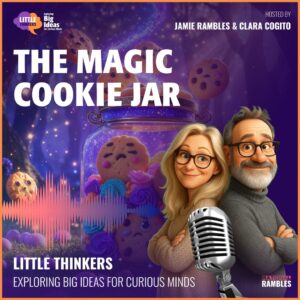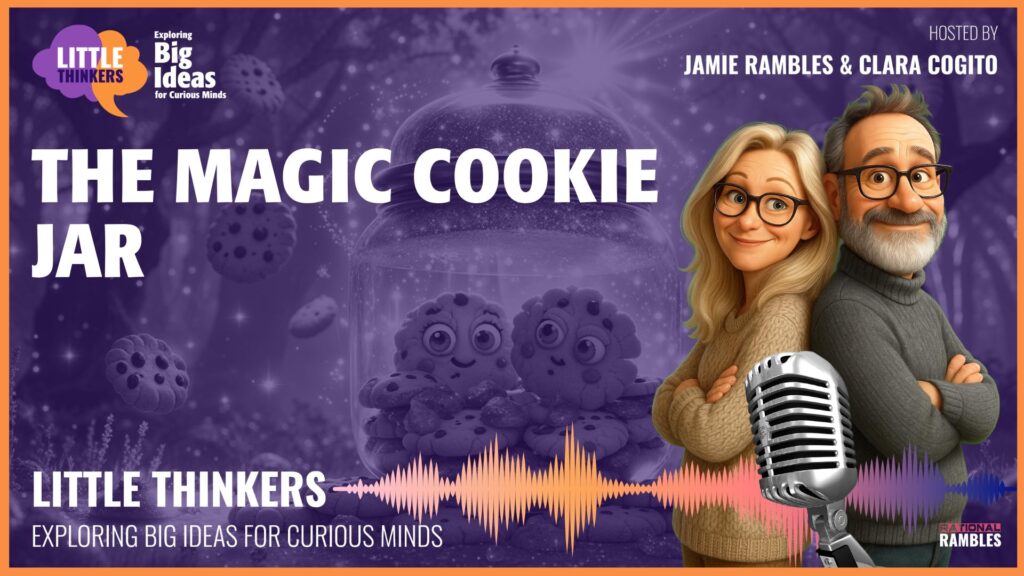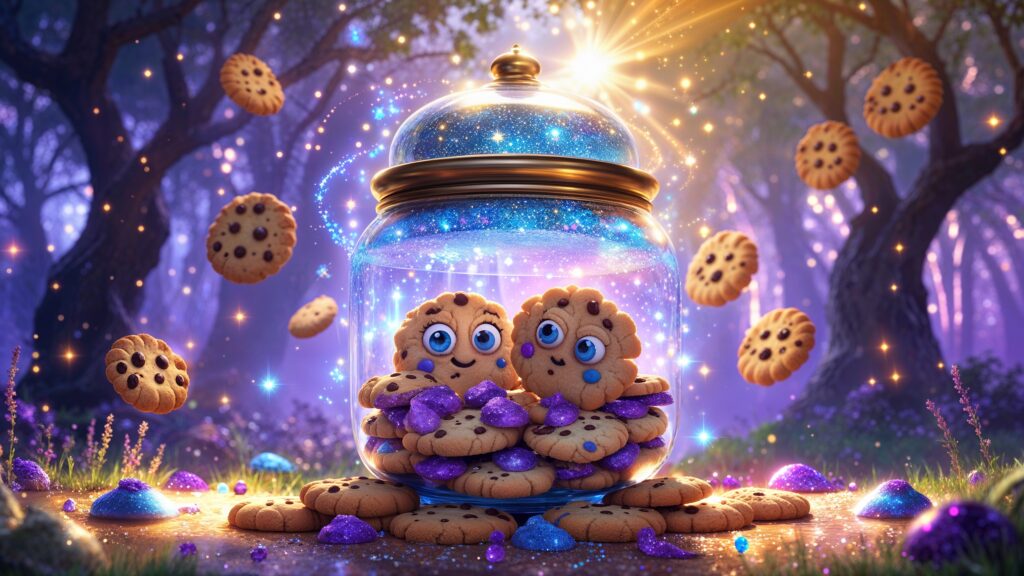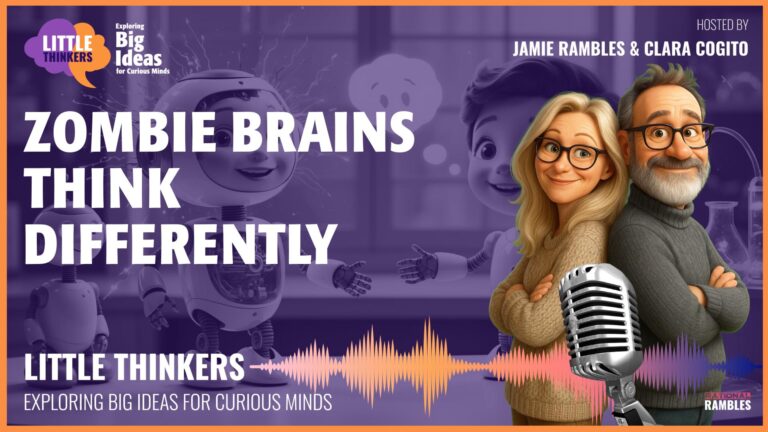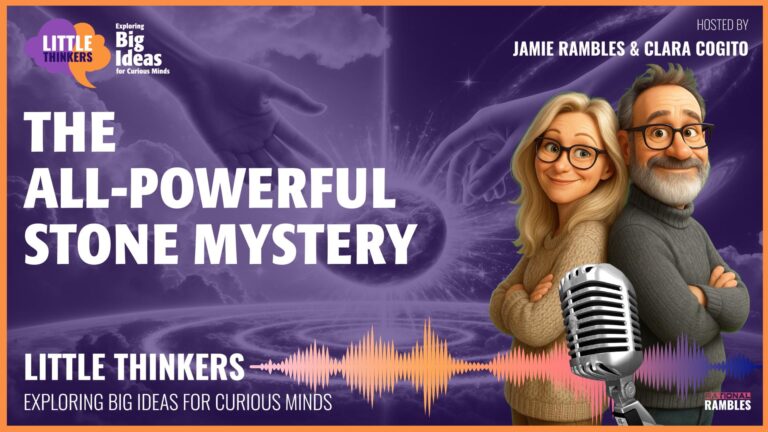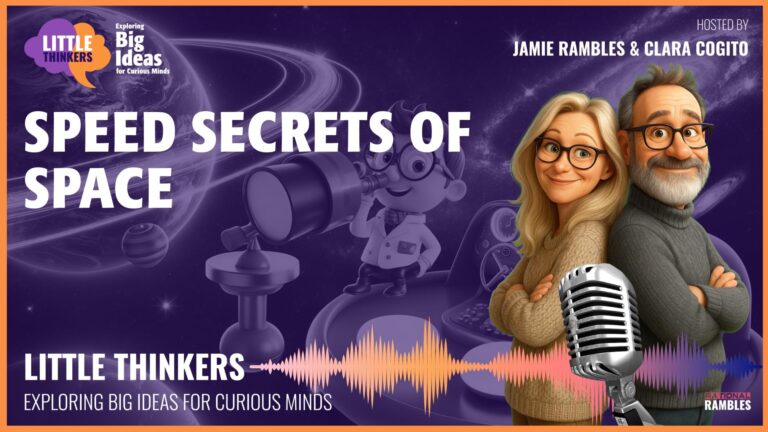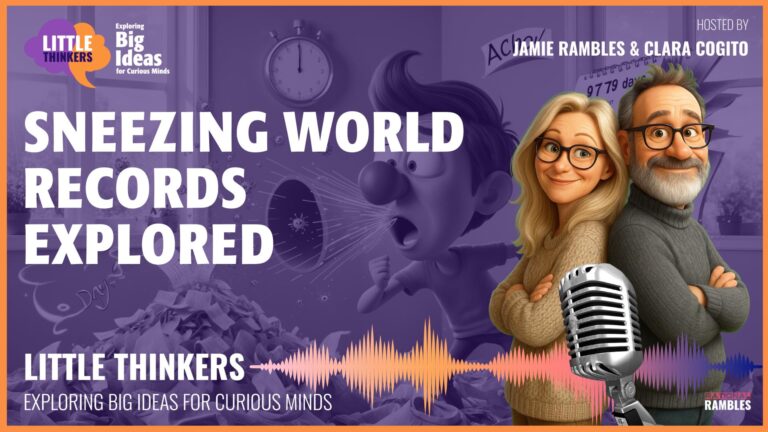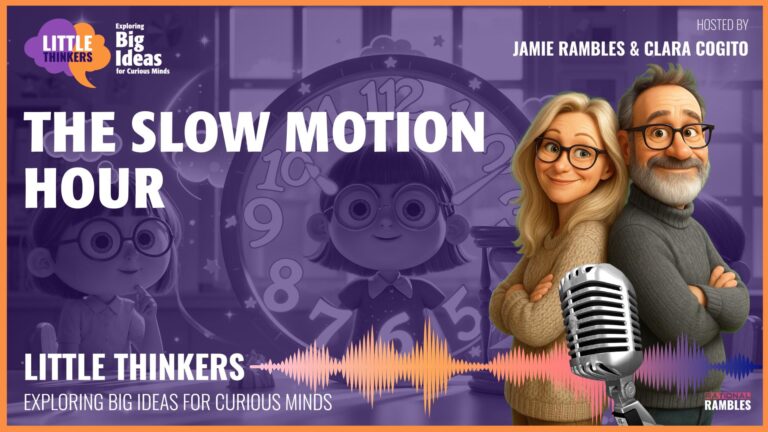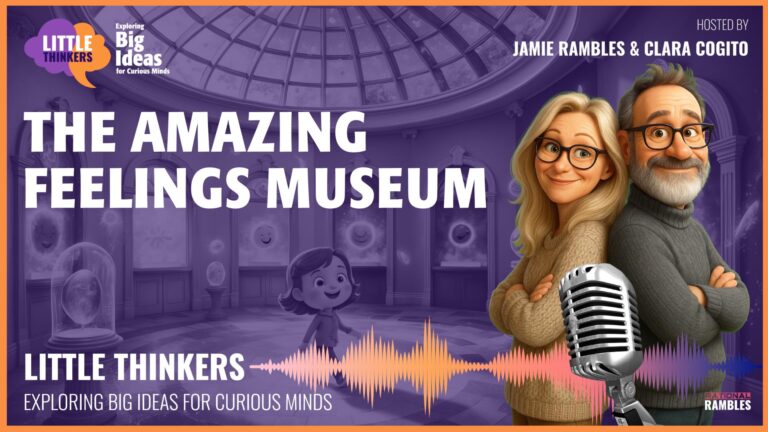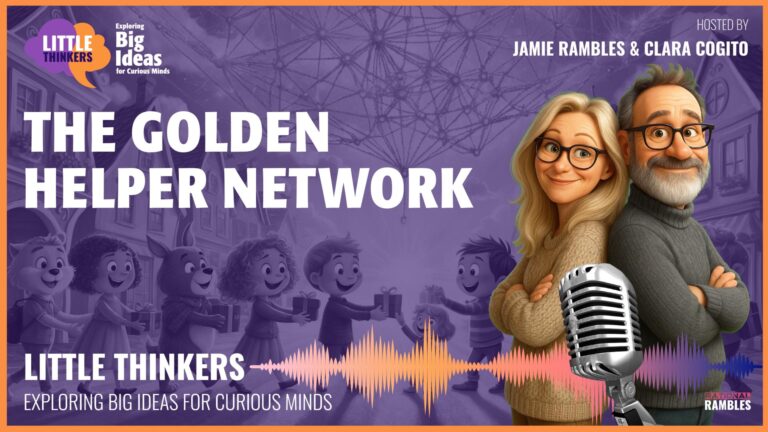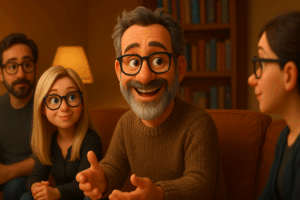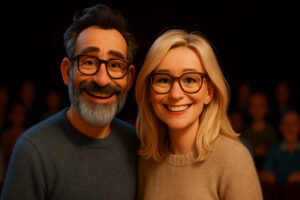The Mysterious Cookie Jar: Would You Take One?
Imagine Finding a Magic Cookie Jar…
Imagine walking into your bedroom one day and finding a beautiful, sparkly jar filled with the most delicious-looking cookies you’ve ever seen! Chocolate chip, rainbow sprinkles, peanut butter – all your favorites! But wait… this isn’t just any cookie jar. It’s magical!
This special jar NEVER runs out of cookies. You can take one cookie today, another tomorrow, and the jar will always be full again. Sounds amazing, right? But there’s a catch (that means there’s a tricky part): every time you take a cookie from this magical jar, a cookie disappears from another child somewhere in the world. POOF! Their cookie is gone!
What would YOU do? Would you still take cookies from this jar, knowing what happens?
What Is an Ethical Dilemma?
This tricky choice about the cookie jar is what grown-ups call an ethical dilemma (that’s a fancy way of saying a really tough choice about what’s right and wrong). When we have to decide between something we want and something that might hurt others, our brains have to work extra hard!
Ethical dilemmas are like when your friend asks you to keep a secret that you think might get someone in trouble. Or when you find money on the playground but don’t know who dropped it. These situations make you think: “What’s the right thing to do?”
Your Brain’s Thinking Superpowers!
Did you know your brain has special superpowers for figuring out tough choices? One superpower is feeling empathy – that’s when you can imagine how someone else feels. Like when you see a friend fall down, and your own knee suddenly feels a little ouchy too!
Another superpower is your conscience – it’s like a tiny voice inside that gives you that funny feeling in your tummy when you’re about to do something not-so-nice. Your conscience might say, “Hey! Taking that cookie means another kid will be sad!”
The Sneaky Excuses Our Brains Make
Sometimes our brains try to trick us when we really want something. They make up excuses to help us feel better about our choices. Have you ever done this?
- “Just one cookie won’t hurt…”
- “I’m REALLY hungry right now!”
- “The other kid probably has lots of other cookies anyway.”
- “Nobody will know it was me who took it.”
Our brains are super clever at coming up with reasons why it’s okay to do what we want! But a truly strong brain can spot these excuses and think more carefully.
Would It Be Different If You Could See?
Let’s try a quick experiment: Close your eyes and imagine the cookie jar is on your table. Now imagine your friend is sitting right next to you. Every time you take a cookie, one disappears from your friend’s plate, and they look sad.
Would that make your choice different? Most people find it harder to take something when they can see who gets hurt. When we can’t see who loses the cookie, psychologists call this “psychological distance” (that means it’s harder to care about things that seem far away).
What If It Wasn’t Cookies?
Let’s twist our brains a little more! What if the magic jar had different things inside?
The Toy Jar
Imagine a jar full of amazing toys. Every time you take one, a toy disappears from another child somewhere. Maybe it was their favorite teddy bear or the action figure they saved up for!
The Medicine Jar
What about a jar of medicine that makes you feel better when you’re sick? If you take some when you have a cold, another sick child somewhere loses their medicine. This feels even MORE important than cookies or toys, doesn’t it?
The School Supply Jar
Or picture a jar filled with pencils, crayons and notebooks. Each time you grab one, another child loses their only pencil and can’t do their schoolwork. How would that make you feel?
These different examples show us that sometimes our choices feel different depending on what’s at stake. A cookie might seem small, but medicine or school supplies? Those feel bigger because they help with important things like health and learning!
The Cookie Jar in Real Life
Here’s something really mind-blowing: this magical cookie jar is teaching us about something REAL in our world! In real life, there isn’t an endless supply of everything. When some people use lots of something, it might mean there’s less for others.
For example:
- When we take super-long showers, we use water that other people might need
- When we leave lights on all day, we use electricity that creates pollution
- When we throw away food, we waste resources that could feed others
It’s just like the cookie jar, except it’s happening with real things in our world every day! Whoa!
Finding Balance: Personal Rules
Some people create what we call personal rules to help them decide what’s right. These are like special guidelines you make for yourself. With the cookie jar, someone might decide:
- “I’ll only take a cookie on special days like my birthday.”
- “I’ll take one cookie, but then I’ll give one of my own cookies to a friend.”
- “I won’t take any cookies because I don’t want anyone to lose theirs.”
What personal rule would YOU make for the magic cookie jar?
Compensation: Balancing the Scales
Here’s a super cool idea some people have: What if, every time you take a cookie, you also do something nice for another child to make up for it? Like giving one of your toys to someone who doesn’t have many, or helping a friend with homework.
Psychologists call this compensation – it’s like a see-saw of actions! You do something that might not be perfect, but then you balance it with something good. It’s like if you accidentally bump into someone, you help them pick up their things.
The Connected World Experiment
Let’s try a fun thinking experiment! Look around your room. Pick any object – maybe your sneakers, a toy, or your favorite book. Now ask yourself: “How did this get to me? Who helped make it? Did making it use resources that others might need?”
Everything we have is connected to other people and places, just like the magic cookie jar! Your T-shirt might be connected to a cotton farm far away. Your plastic toy might be connected to oil deep in the earth.
When we understand these connections, we can make choices that help everyone have enough – not just ourselves!
Everyday Choices That Matter
You can use your cookie jar thinking in everyday life! Here are some examples:
- Turning off water while brushing teeth (saving water for others)
- Sharing toys with friends or donating ones you don’t use
- Not wasting food on your plate
- Using both sides of paper when drawing
- Being careful not to break things so they don’t end up in landfills
Every time you make one of these choices, it’s like you’re saying, “I care about other people, even if I can’t see them!”
Talk About It: Family Cookie Jar Challenge
Here’s a super fun activity to try: Tell your family about the magic cookie jar! Ask each person what THEY would do and why. You might be surprised by their answers!
Then, try changing what’s in the jar (toys, medicine, school supplies) and see if their answers change. It’s like being a scientist of choices!
You could even draw pictures of your magical jar and what you decided to do with it. Hang them up to remind everyone about thinking of others when we make choices.
Your Amazing Thinking Brain
The most important thing to remember is that by just THINKING about these questions, your brain is getting stronger! Just like doing push-ups makes your arms stronger, thinking about tricky choices makes your brain better at figuring out what’s right and wrong.
There’s no perfect answer to the magic cookie jar question. Different people might make different choices. The important thing is that you’re using your amazing brain to think carefully about how your actions affect others.
That kind of thinking is what helps make our world a better, kinder place for everyone – cookie lovers included!
What Would YOU Do?
Now it’s your turn to decide: If you found this magic cookie jar tomorrow, what would YOU do? And more importantly – why? The answer might tell you something super interesting about yourself and what you think is important!
Remember, your brain is the most amazing tool you have for figuring out right and wrong. Keep wondering, keep thinking, and keep being your amazing self!


